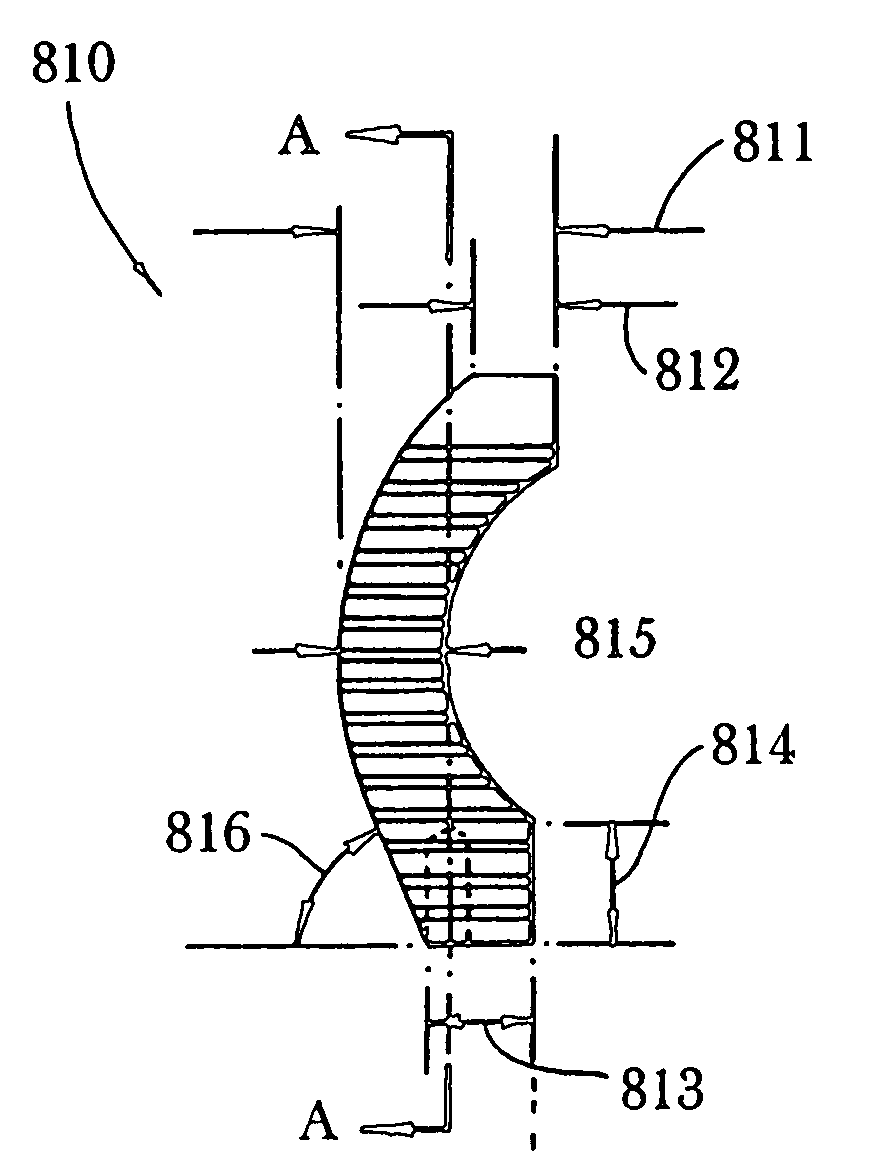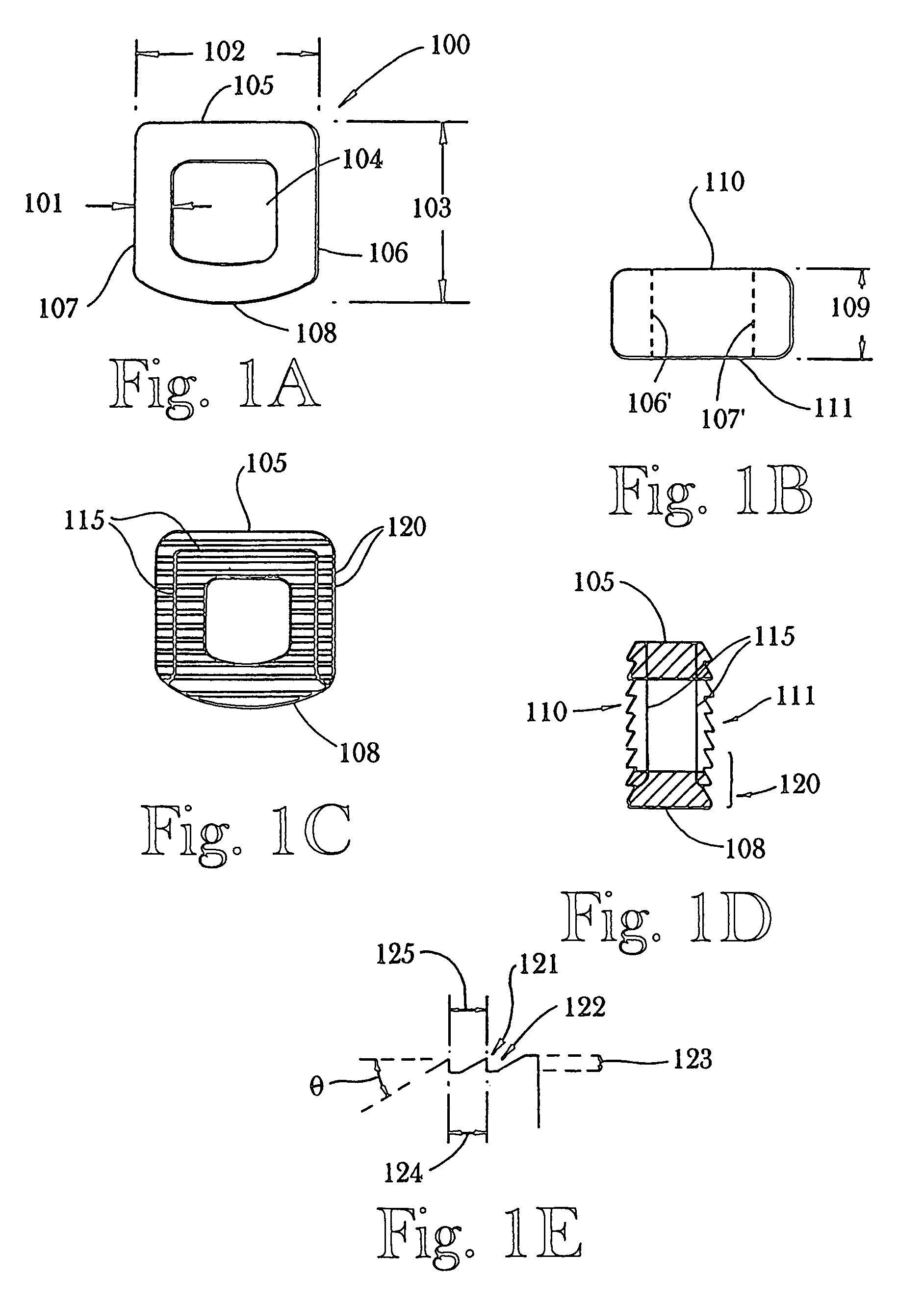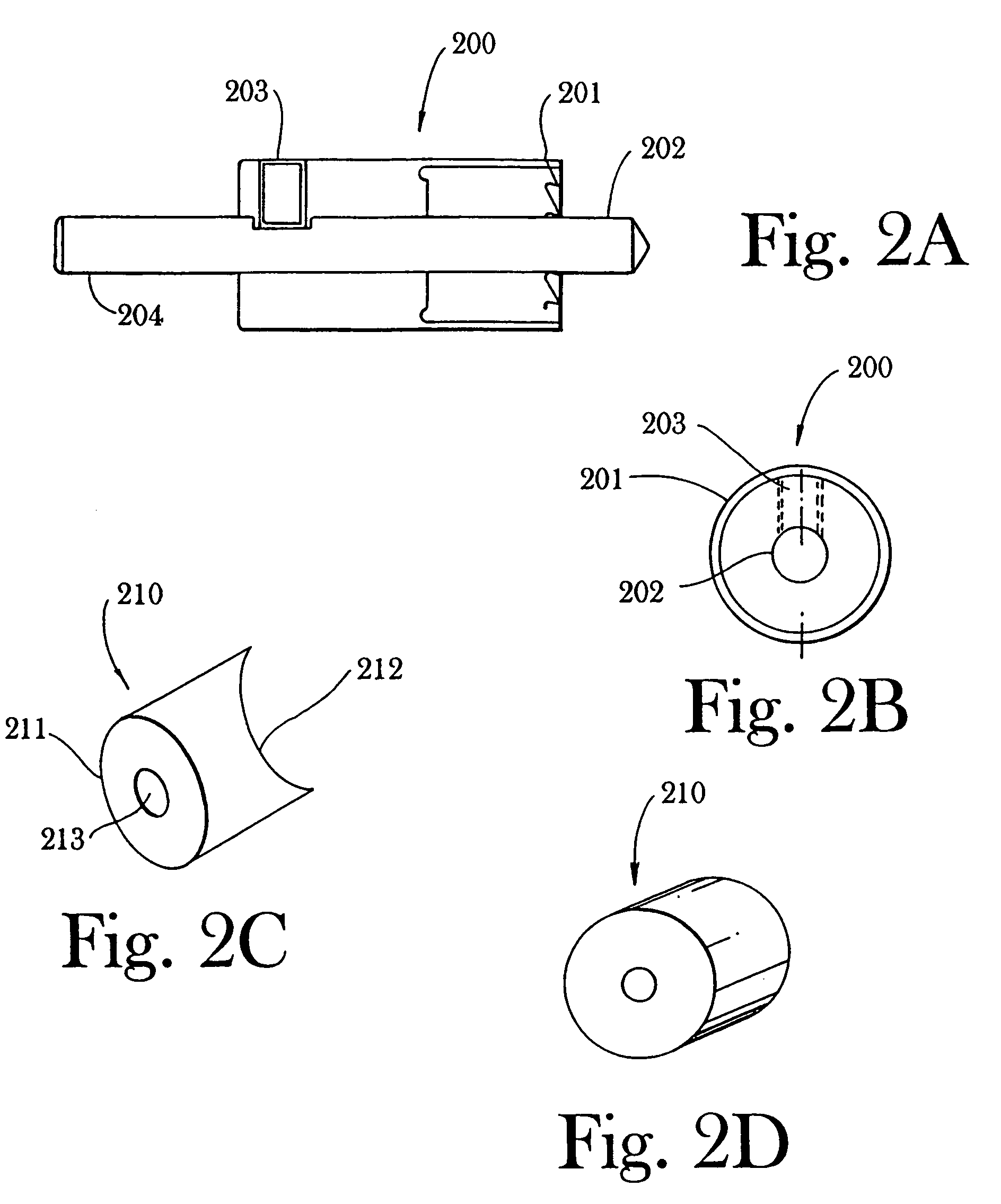Elongated cortical bone implant
a cortical bone and implant technology, applied in the field of cortical bone implants, can solve the problems of less than 100% success rate (fusion, patient improvement, absence of complications) and achieve the effect of less than 100% success ra
- Summary
- Abstract
- Description
- Claims
- Application Information
AI Technical Summary
Benefits of technology
Problems solved by technology
Method used
Image
Examples
Embodiment Construction
[0023]According to this invention, a substantially “D”-shaped cortical bone implant for cervical Smith-Robinson fusions is produced, preferably under aseptic conditions. Class 10 clean room processing is desirable, and sterilization of all machining tools is likewise preferred, (particularly after switching from one allograft donor to the next), so that the finished product may be treated by standard techniques known in the art (alcohol, peroxide, or like treatments), prior to storage and shipment to physicians for use in implantation procedures. Because of the peculiarities of working with bone, and in particular, because of the desirability of maintaining aseptic conditions while working with this material, novel approaches have been adopted in the production of the product of this invention.
[0024]The implant is preferably formed from cortical bone obtained from tibia, femur or other source of strong cortical bone. The bone source may be autograft or, due to possible complications...
PUM
 Login to View More
Login to View More Abstract
Description
Claims
Application Information
 Login to View More
Login to View More - R&D
- Intellectual Property
- Life Sciences
- Materials
- Tech Scout
- Unparalleled Data Quality
- Higher Quality Content
- 60% Fewer Hallucinations
Browse by: Latest US Patents, China's latest patents, Technical Efficacy Thesaurus, Application Domain, Technology Topic, Popular Technical Reports.
© 2025 PatSnap. All rights reserved.Legal|Privacy policy|Modern Slavery Act Transparency Statement|Sitemap|About US| Contact US: help@patsnap.com



